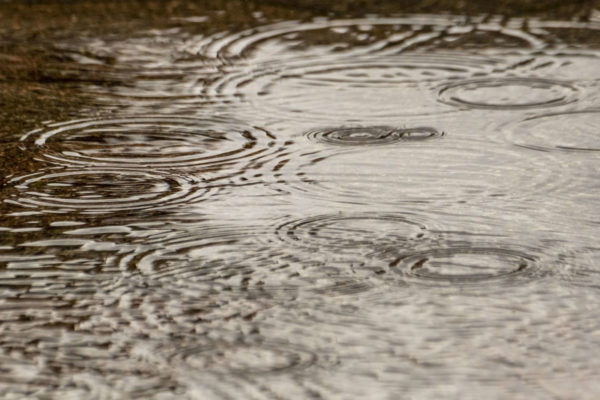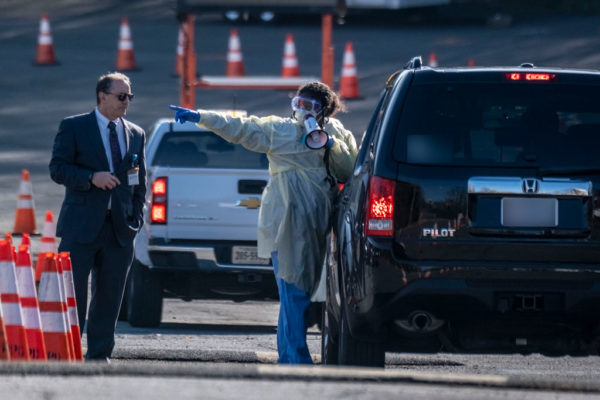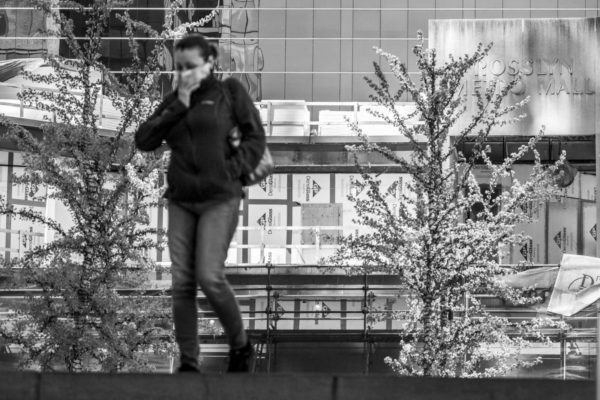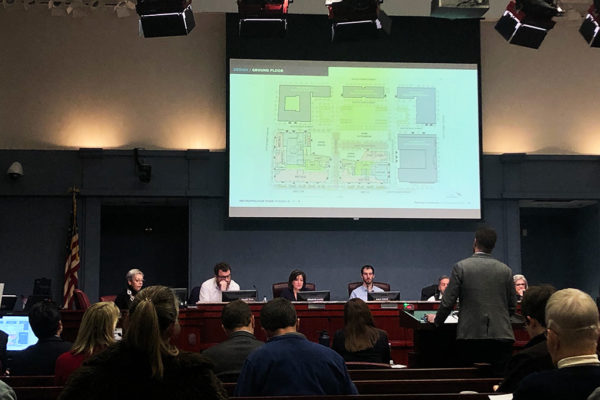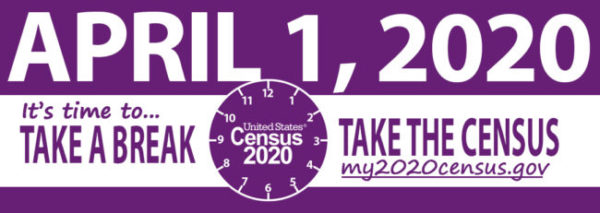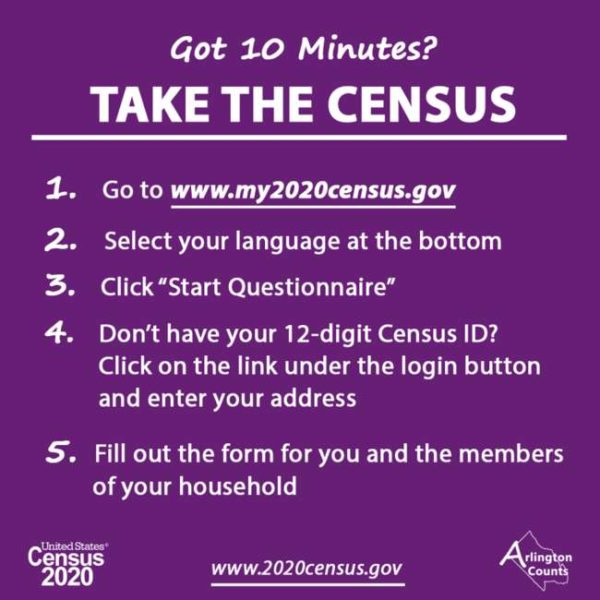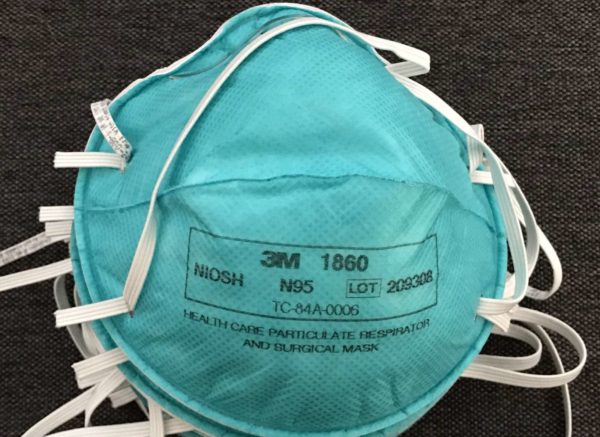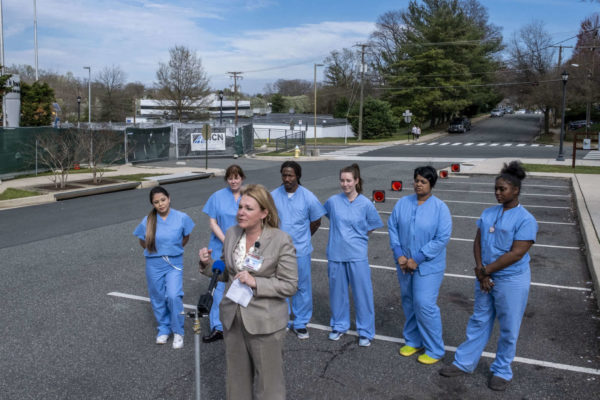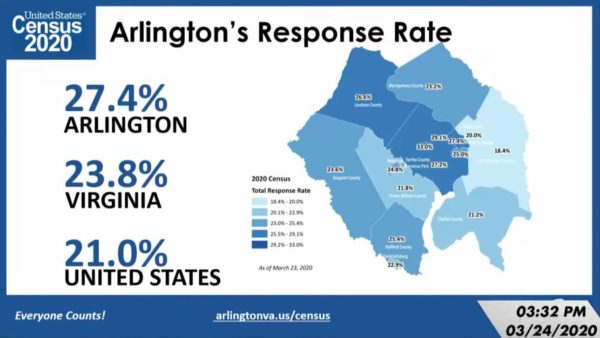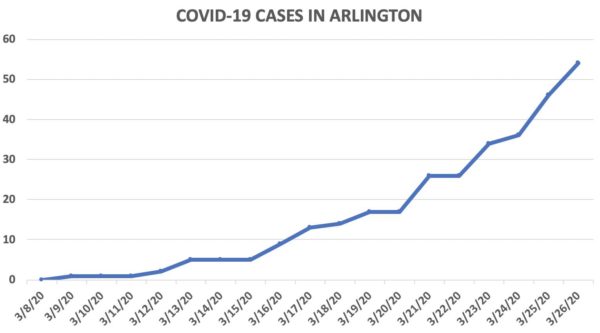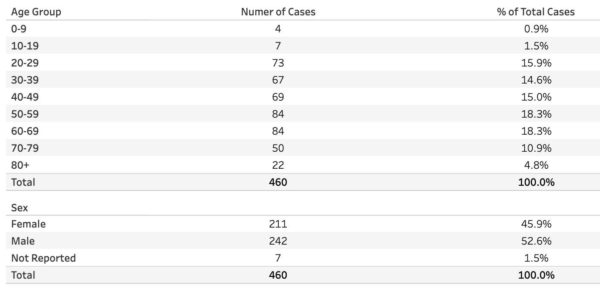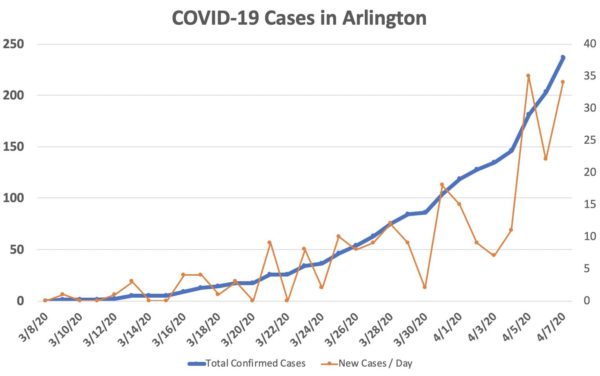
Arlington has confirmed another 34 COVID-19 cases since Monday, the county’s second-largest increase in cases since the outbreak began.
There are now 237 known coronavirus cases in Arlington, up from 104 cases a week ago.
Statewide, the Virginia Dept. of Health is reporting 3,333 cases, 563 hospitalizations, 63 deaths and 28,645 people tested as of Tuesday.
As the numbers continue to increase, Arlington County is urging residents to follow the Centers of Disease Control and Prevention’s new guidance regarding wearing masks while in public.
Especially while in places like grocery stores and pharmacies, the county says, residents should wear a cloth facemask. Such masks can be made at home, as Arlington County Board Chair Libby Garvey demonstrated in a new video.
The county says masks — which are commonly worn in Asian countries, especially during flu season — are a way to prevent the spread of disease.
“The cloth face covering is to protect people around you if you are infected but do not have symptoms,” the county said. “To be clear, this is not meant as a replacement to staying at home, handwashing or maintaining six feet of distance — those remain the cornerstones in the effort to slow the spread of the coronavirus.”
There remains a stigma around wearing masks in public in the U.S., however. Just this morning, someone called Arlington County Police to report a “suspicious” man wearing a mask and supposedly pushing an empty baby stroller while looking into car windows. Arriving officers found that the man was a resident of the caller’s building and that there was a baby in the stroller
Virginia Gov. Ralph Northam is also pushing residents to wear masks, assuring those with concerns that a law that makes wearing masks in public in public a felony will not be enforced due to his declaration of a statewide emergency.
The full county press release is below.
Arlington County is encouraging all Arlingtonians to wear cloth face coverings when in public settings where other social distancing measures are difficult to maintain.
This directive is in accordance with a new recommendation from the Centers for Disease Control and Prevention (CDC), which encourages the cloth face coverings in public (e.g. grocery stores and pharmacies).
To be clear, this is not meant as a replacement to staying at home, handwashing or maintaining six feet of distance – those remain the cornerstones in the effort to slow the spread of the coronavirus.
Why Do You Need to Wear Cloth Face Coverings?
There is now evidence that people with coronavirus can transmit it to others before showing symptoms (“asymptomatic” or “pre-symptomatic”). The use of a cloth face covering can help to slow the spread, particularly among those who have the virus and do not know it.
To be clear: the cloth face covering is to protect people around you if you are infected but do not have symptoms.
What Type of Cloth Face Covering Should be Worn?
The suggested cloth face coverings, fashioned from household items or made at home from common materials, are not surgical masks or N-95 respirators – those are critical supplies needed by healthcare workers and other medical first responders.
The CDC offers three types of cloth face coverings for use:
- Sewn Cloth Face Covering
- Quick Cut T-shirt Face Covering (no sew method)
- Bandana Face Covering (no sew method)
All cloth face coverings should:
- fit snugly but comfortably against the side of the face
- be secured with ties or ear loops
- include multiple layers of fabric
- allow for breathing without restriction
- be able to be laundered and machine dried without damage or change to shape
All cloth face coverings should be cleaned routinely in a washing machine. Individuals should avoid touching their eyes, nose and mouth when wearing or removing their face covering and wash hands immediately after removing.
For more information about the COVID-19 coronavirus and how you can help protect yourself and those around you, visit arlingtonva.us/Coronavirus.
For questions about COVID-19, call the Arlington County COVID-19 Information Line at 703-228-7999.


